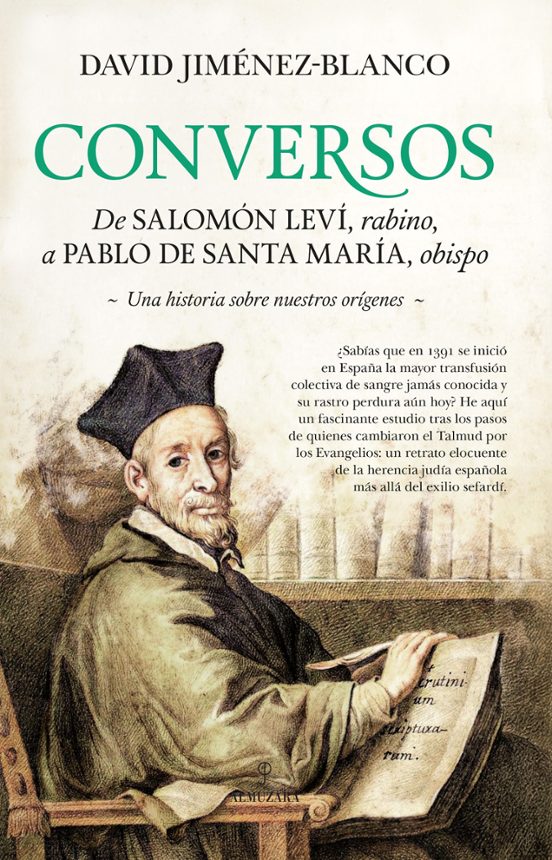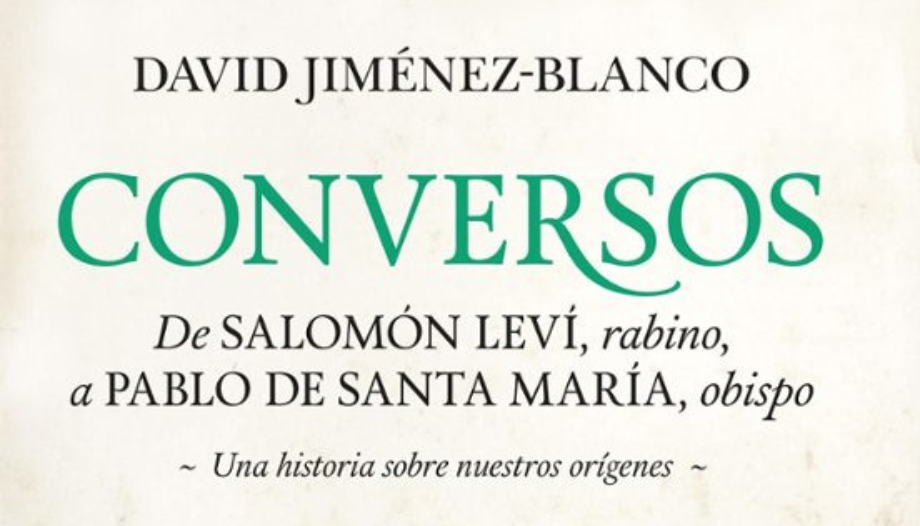The economist David Jiménez Blanco (Granada 1963), a specialist in investment banking and manager of large companies, is at the same time a seasoned historian of past epochs of our land and, with the work we now present, demonstrates that history can be a second profession or trade because, as Saint Josemaría said, to rest is to change occupation, so the reader will see that Jiménez Blanco has studied and enjoyed documenting and writing about the past. "Conversos".
A misleading title
In any case, let us begin by pointing out that the title of the work is a little misleading, since from its reading it is easy to infer that the author is going to develop an essay on the theology of history to show the processes of conversion of the Jews of Seville, Valencia and Burgos in the years 1390-1391, when abundant conversions from Judaism to Christianity began to take place in some of the large cities of Hispania.
Likewise, from the subtitle, one could venture that we were going to witness the "metanoia" or inner conversion of the once great rabbi of Burgos, Salomón Leví, the most important Jew of the kingdoms of Castile and Aragón, to Christianity and, after a while, he would be ordained priest and bishop to end up occupying the archiepiscopal see of Burgos, then also the most important of Castile.
What it's really about
In reality, the book is a great exposition and historical setting of the coexistence of Jews, Muslims and Christians in times of the end of the reconquest, XIV and XV centuries, when the Christians living in the Iberian Peninsula wondered intensely about the reason for the lack of conversions of Jews to Christianity and came to the conclusion that they had not explained themselves well.
Both the Christian theologians and the faithful people were convinced that, if they could explain themselves better, they were sure to become a mass, as indeed they did.
Indeed, since the fifties, when the Acts of the "Disputation of Tortosa" (Antonio Pacios, CSIC-Arias Montano Institute, 1957) were published, we know very well the summons of Pope Luna, Benedict XIII, and the King of Aragon, Ferdinand I, to the great of the kingdom of Aragon, clergy and nobility, as well as the Jews of the highest consideration to attend a public dispute for almost two years.
During sixty-seven sessions (1413-1414), morning and afternoon, they met to listen to the best and most expert rabbi in the messianic promises: the main one was Rabbi Albó (309) and the best Catholic scripturist of the time: Jerónimo de Santa Fe (302), to answer both to a single question: if Jesus Christ had fulfilled all the messianic prophecies or not. The Acts that were signed and sealed every afternoon by the disputants, as well as by the authorities present, attest to the intense and serene expositions on both sides.
Finally, at the end of the book, Pacios' work includes the echoes of the dispute of Tortosa: thousands of Jews of all kinds and conditions were converted and the greatest of the kingdom were, in fact, sponsored by the kings and nobles of both Castile and the kingdom of Aragon, as godparents of baptism and confirmation and marriage of those new Christians.
Three types of citizens
Indeed, after those events, it is worth noting that the chronicles affirm the existence in Castile and Aragon of three types of citizens (if we can talk like that at that time): the old Christians, that is to say, those of all their lives, the families that led the reconquest of the Christian lands of Hispania that in 711 suffered the humiliation of the conquest as punishment for the disunity of those Visigothic nobles, some still Arian, without conversion, who gave in to the Muslims.
The second category would be the Jews who had not received the grace of faith and baptism and who continued, therefore, faithful to the law of Moses and under the protection of the king of Castile, for as the book of the Partidas said to perpetuate the memory of the deicide people.
Finally, there was the large and very numerous group of new Christians, recent converts to Christianity who brought their talents and the love of the convert, and this, logically, will be noted both in the exercise of the ascetic life, as well as in mysticism and literature, as will be observed in the golden century of Christianity. mystique 16th century Castilian Spanish.
Criticism and slander
At the same time, criticism arose from both sides. On the one hand, some old Christians began to show their discomfort when they saw that the new Christians - Jewish converts - were rapidly gaining access to important positions in the judiciary, local governments, the army, the countryside, the Church and even the militia. Faced with this situation, they spread accusations of apostasy or religious practices mixed with elements of Judaism.
On the other hand, there were also slanders by some Jews who, feeling betrayed in their faith, accused the converts of being neither good Jews nor authentic Christians, insinuating that their conversion had been motivated solely by the desire to leave Jewry and move up the social ladder.
In this context, the Catholic Monarchs, with the aim of achieving total unity in their kingdoms - political, juridical and religious - requested Pope Sixtus IV to create the Inquisition in Castile. This institution had the mission of investigating possible false conversions or cases of apostasy among the new Christians, with the intention of reestablishing peace and social cohesion. However, when the unity of faith was not fully achieved, the monarchs made the wrong decision: to expel the Jews from their territories. They were the last in Europe to do so, and this measure was a great loss to society as a whole.
Conversos









